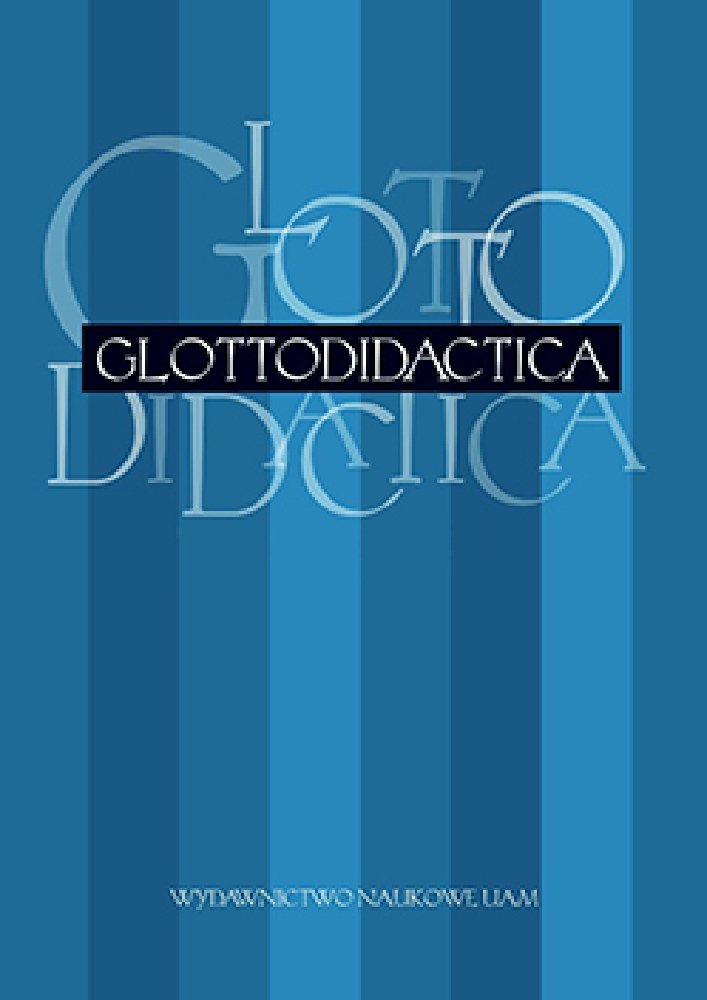Abstract
This paper gives an introduction to "Interculture TV", an educational videocast project initiated by the Department of "Intercultural Studies and Business Communications" at the Friedrich Schiller University, Jena. The project provides open access to audio-visual teaching/learning materials produced by intercultural student work groups and offers opportunities for cooperation. Starting from a definition of the term "educast", the article analyses the videocast episodes on Interculture TV and discusses their potential for inter-cultural instruction and learning.Literaturhinweise
Bauer, G.U., 2010. Lehrfilme. In: Weidemann, A., Straub, J. & Nothnagel, S. (Hrsg.), 2010: Wie lehrt man interkulturelle Kompetenz? Theorien, Methoden und Praxis in der Hochschulausbildung. Ein Handbuch. Bielefeld: transcript, 375–385.
Beers, M., 2001. A media-based approach to developing ethnographic skills for second language teaching and learning. In: Zeitschrift für Interkulturellen Fremdsprachenunterricht 6/1, 2001. [On-line: http://zif.spz.tu-darmstadt.de/jg-06-2/beitrag/beers2.htm. 1. August 2011].
Bolten, J., 2007. Interkulturelle Kompetenz. Erfurt: Landeszentrale für Politische Bildung.
Bolten, J., 2009. „Miteinander“ – Educasts zu Schlüsselbegriffen interkulturellen Handelns. In: Interculture Journal 2009, Heft 9, 151f. [On-line: http://www.interculture-journal.com. 1. August 2011].
Bolten, J., 2010a. E-Learning. In: Weidemann, A., Straub, J. & Nothnagel, S. (Hrsg.), Wie lehrt man interkulturelle Kompetenz? Theorien, Methoden und Praxis in der Hochschulausbildung. Ein Handbuch. Bielefeld: transcript, 397–416.
Bolten, J., 2010b. Das Internet als Basis transnationalen und interkulturellen Lernens. Der „Intercultural Campus” als Beispiel. In: Das Wort. Germanistisches Jahrbuch Russland 2010, 13–28.
Brandi, M.-L., 1996. Video im Deutschunterricht. Berlin u.a.: Langenscheidt-Verlag (Fernstudieneinheit DaF, 13).
Ebner, M. & Schön, S. (Hrsg.), 2011. L3T. Lehrbuch für Lernen und Lehren mit Technologien. [On-line: http://l3t.eu. 1. August 2011].
Klemm, U., 2005. Podcasts im Fremdsprachenunterricht. [On-line: Website Lehrer on-line, uter: http://www.lehreronline.de/502276.php?sid=74331907513799610231023782378920. 1. August 2011].
Kluckhohn, K., 2009. Podcasts im Sprachunterricht am Beispiel Deutsch. Berlin: Langenscheidt.
Krauß, A. & Schmittinger, I., 1994. Theorie und Praxis interkulturellen Lernens mit Medien. In: Otten, H. & Treuheit, W. (Hrsg.), Interkulturelles Lernen in Theorie und Praxis. Ein Handbuch für Jugendarbeit und Weiterbildung. Opladen: Leski + Budrich 1994 (Schriften des Instituts für angewandte Kommunikationsforschung, 5), 177–216.
Mootz, J., CeLTech – Centre for e-Learning Technology (Universität des Saarlandes): EduCast – Hochschul-Podcasting leicht gemacht. 10 Podcasts. [On-line: http://www.podcampus.de/channels/83. 1. August 2011].
Niegemann, H.M., 2008. Kompendium multimediales Lernen. Berlin / Heidelberg: Springer. [On-line-Ausgabe].
Schell, F., 2003. Aktive Medienarbeit mit Jugendlichen – Theorie und Praxis. 4. unveränderte Auflage, München: kopaed.
Tesar, M., Pucher, R. u.a., 2011. Interaktive, multimediale Materialien. Gestaltung von Materialien zum Lernen und Lehren. In: Ebner & Schön (Hrsg.), 2011. [On-line als PDF herunterzuladen unter: http://l3t.tugraz.at/index.php/LehrbuchEbner10/article/view/38. 1. August 2011].
Thoß, N., 2010. Podcast / Videopodcast. In: Besand, A. & Sander, W. (Hrsg.), Handbuch Medien in der politischen Bildung. Schwalbach: Wochenschau-Verlag, 372–378.
Wikipedia: Art. Podcasting (letzte Bearb. 1. Juli 2011) [Online unter: http://de.wikipedia.org/wiki/Podcast. 1. August 2011].
Zorn, I., Auwärter, A u.a., 2011. Educasting. Wie Podcasts in Bildungskontexten Anwendung finden. In: Ebner & Schön (Hrsg.), 2011) [Als PDF herunterzuladen unter: http://l3t.tugraz.at/index.php/LehrbuchEbner10/article/view/20/37. 1. August 2011].
Lizenz
Authors
Authors of texts accepted for publication in Glottodidactica are required to complete, sign and return to the editor's office the Agreement for granting a royalty-free license to works with a commitment to grant a CC sub-license.
Under the agreement, the authors of texts published in Glottodidactica grant the Adam Mickiewicz University in Poznań a non-exclusive, royalty-free license and authorize the use of Attribution-NoDerivatives 4.0 International (CC BY-ND 4.0) Creative Commons sub-license.
The authors retain the right to continue the free disposal of the work.
Users
Interested Internet users are entitled to use works published in Glottodidactica since 2016, under the following conditions:
- attribution - obligation to provide, together with the distributed work, information about the authorship, title, source (link to the original work, DOI) and the license itself.
- no derivatives - the work must be preserved in its original form, without the author's consent it is not possible to distribute the modified work, such as translations, publications, etc.
Copyrights are reserved for all texts published before 2016.
Miscellaneous
Adam Mickiewicz University in Poznań retains the right to magazines as a whole (layout, graphic form, title, cover design, logo etc.).




